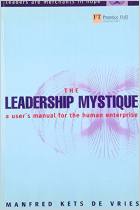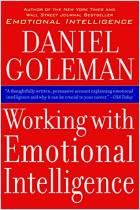Зарегистрируйтесь на getAbstract, чтобы получить доступ к этому краткому изложению.

Зарегистрируйтесь на getAbstract, чтобы получить доступ к этому краткому изложению.
Steven J. Stein
Make Your Workplace Great
The 7 Keys to an Emotionally Intelligent Organization
Jossey-Bass, 2007
Что внутри?
Workplace happiness trickles all the way down to the bottom line.
Recommendation
News flash: Happy workers make successful companies. That is what Steven J. Stein’s research concludes. Much of the information in this book is based on the results of his own surveys. He helped develop the “Benchmark of Organizational Emotional Intelligence” (BOEI), which tests overall emotional intelligence across a company and in its divisions. He suggests measuring it frequently and lists seven steps on how to improve it over time. Stein has long-term experience in this field and offers business wisdom in a conversational tone. getAbstract recommends this guide to human resources managers and corporate leaders who want to emphasize emotional intelligence in their firms.
Summary
About the Author
Steven J. Stein, Ph.D., is the CEO of Multi-Health Systems Inc., a leading Canadian test publishing company, and an expert in psychological assessment and emotional intelligence.



















Comment on this summary